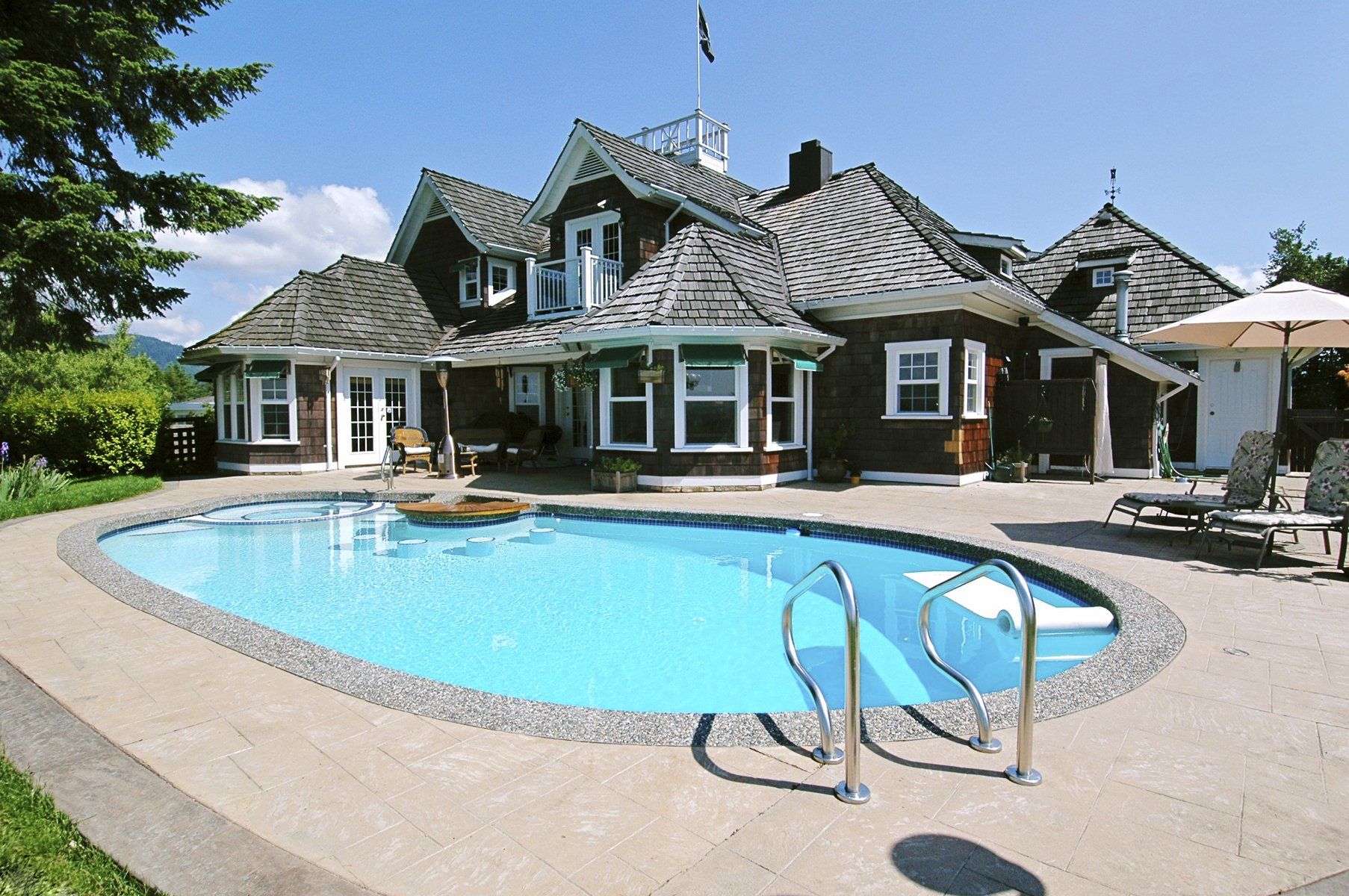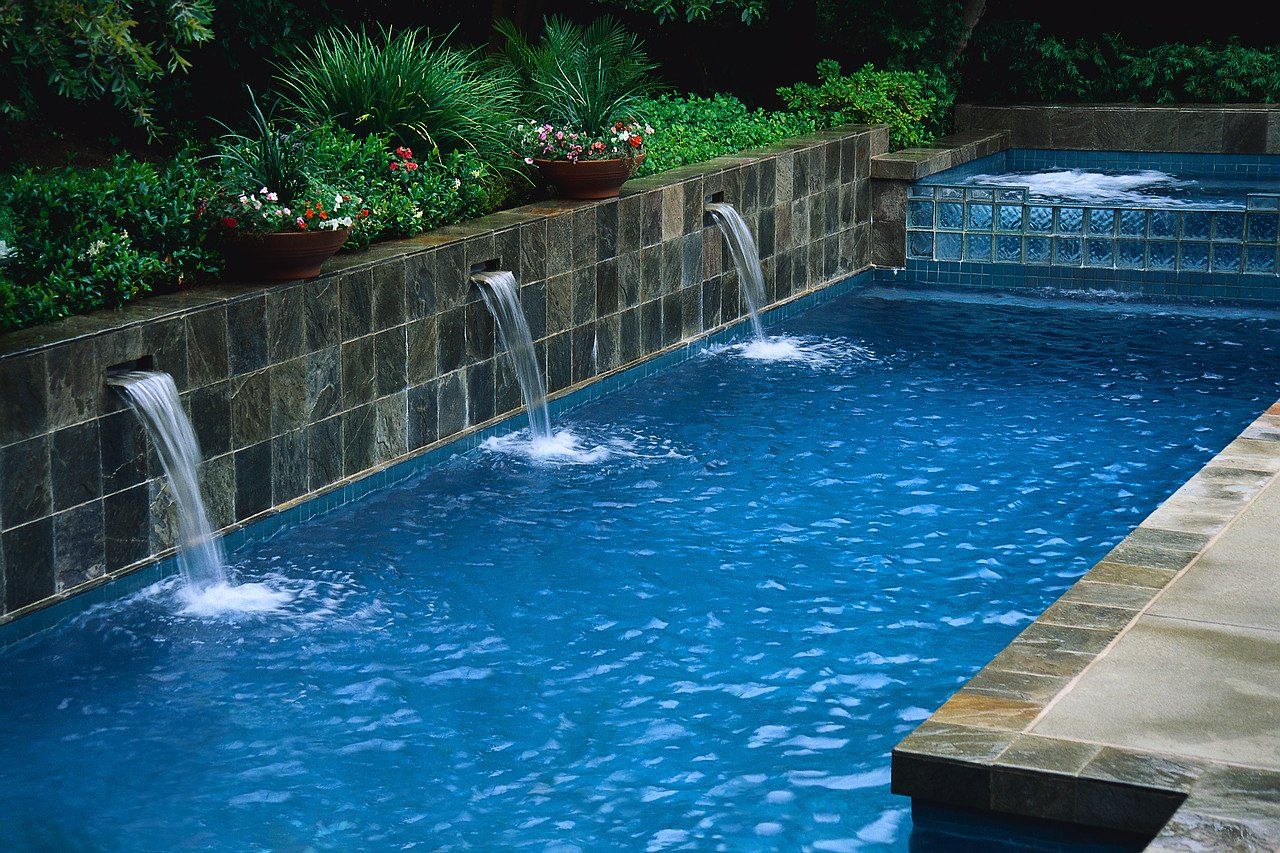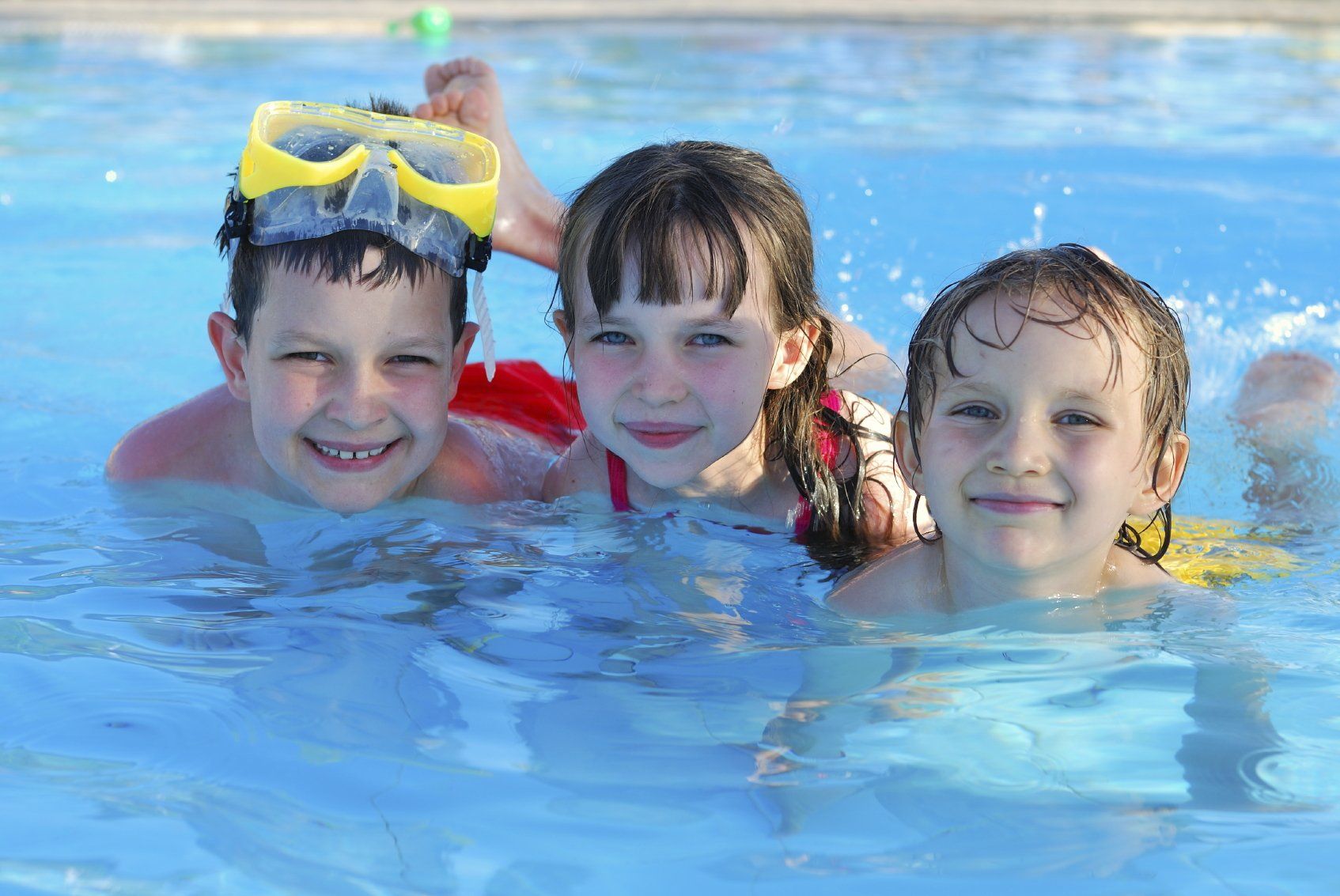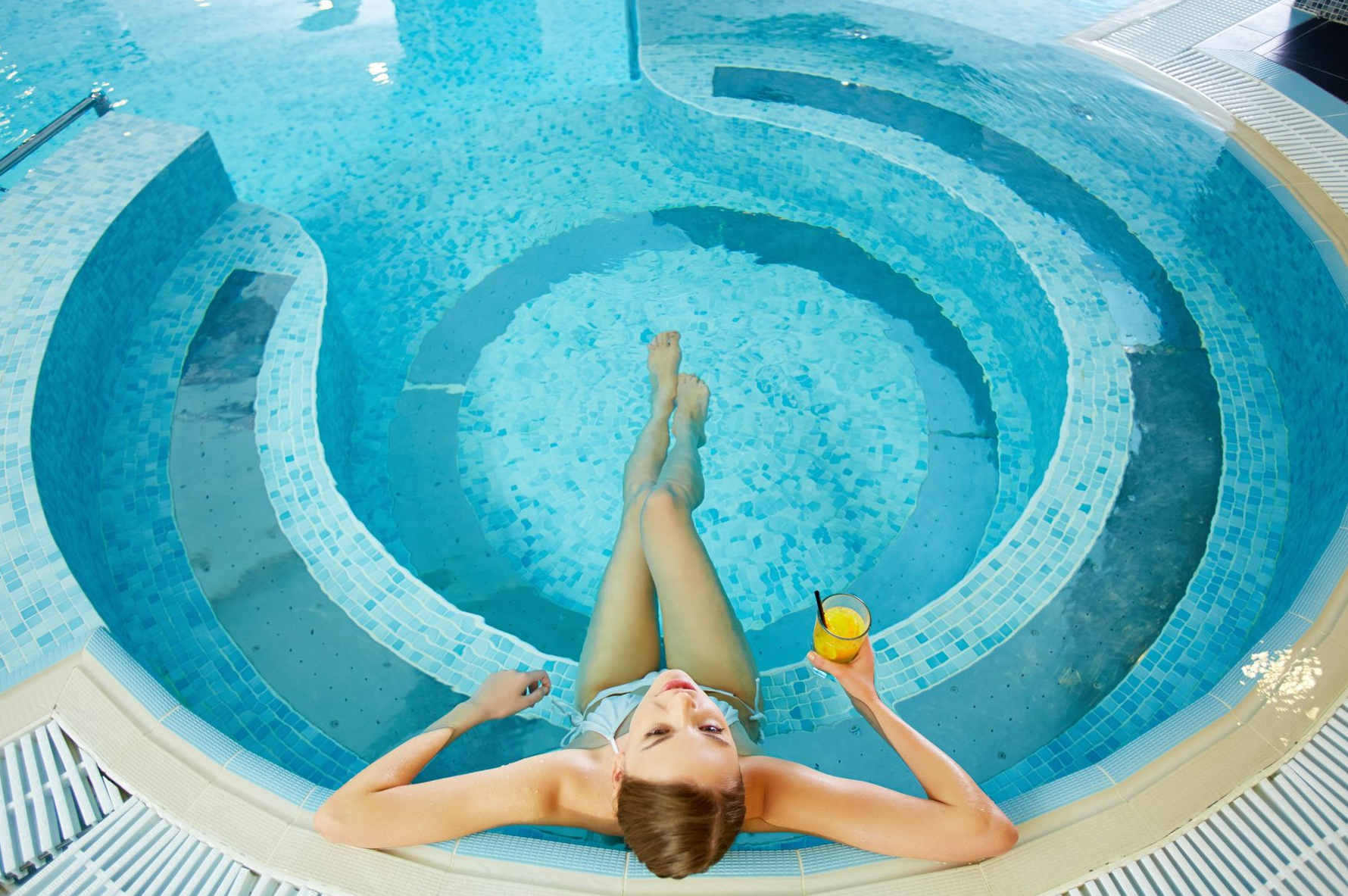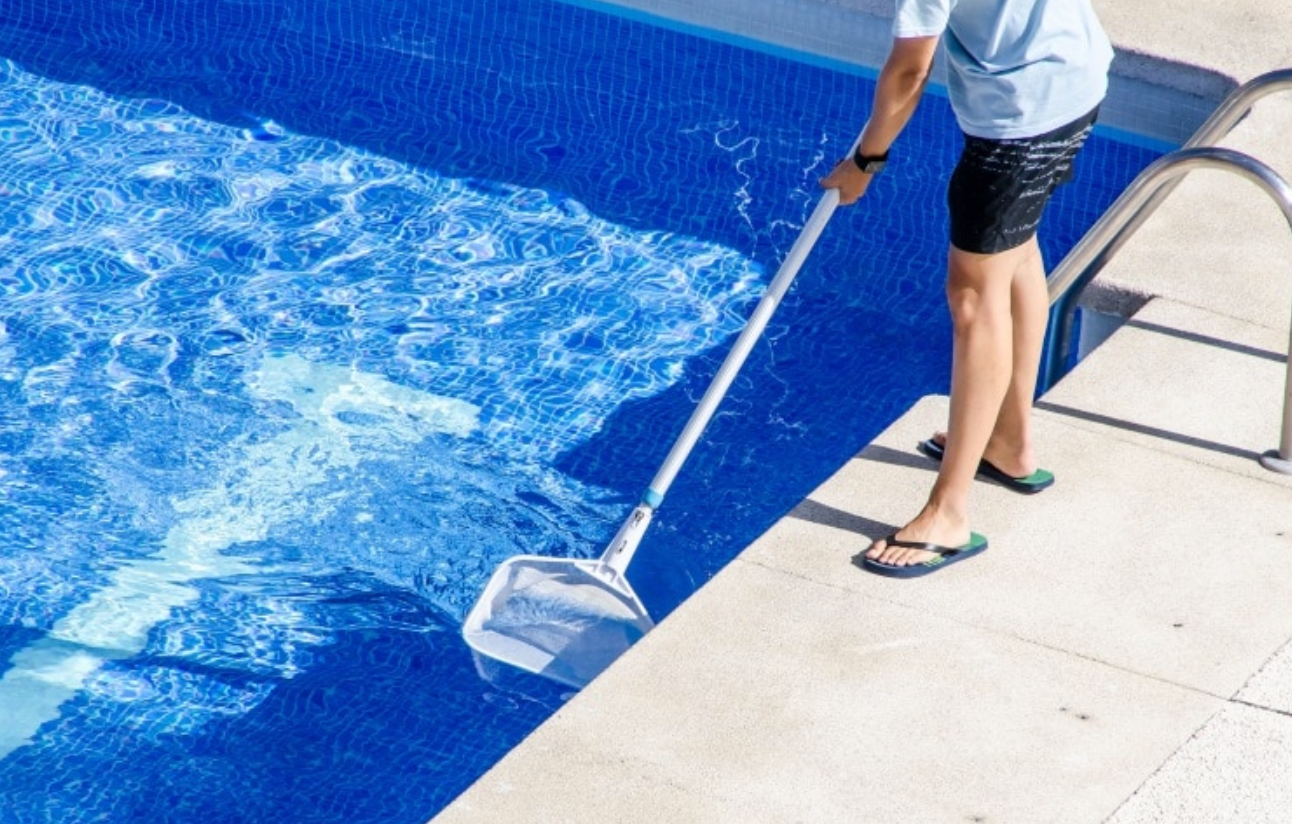7 PRO CLEANING TIPS FOR POOLS IN LOS ANGELES
Are you seeking some expert pool cleaning advice? You're in the right place. Here are seven expert suggestions for keeping your pool hygienic.
Remove Debris From The Pool's Surface With A Skimmer
Skimming the pool's surface is probably the easiest and fastest way to keep it clean. Floating trash, such as leaves, bugs, pollen, and other organic matter usually floats for 3-4 hours before sinking. It becomes more difficult to remove once it has sunk. It also contains all of the nutrients required for algae to thrive. The longer it stays in your pool, the more it decomposes, and the more free chlorine it depletes.
Simultaneously, clean your skimmer baskets. Don't let the debris that gets sucked into the skimmers brew like tea in there, because it'll just end up being pumped back into your pool.
When should you empty the skimmer baskets and skim the pool? Once a day if you don't have a pool cover. If you have a pool cover, you just need to clean it every 3 or 4 days.
Toss One Or More Tennis Ball Into The Pool
This is an old pro tip for removing surface oils created by suntan creams, makeup, body and hair oils, and other oils – all of which can cause hazy water and/or a depletion of your pool's free chlorine levels.
The oils are absorbed into the tennis ball's fluffy surface. As a result, modern tennis balls are more effective than older ones. Oh, and don't throw that tennis ball your dog has been gnawing into the pool!
Cleaning The Pool Regularly
At least once a week, clean your pool. Clean the pool walls, tile line, steps, and ladders thoroughly. Cleaning the walls and surfaces helps to prevent algae and mineral deposits from forming, which can cause hazy pool water. Consider it in the same way as you would brushing your teeth.
Use a strong brush for plaster or concrete pools, and a soft brush for tiles, fiberglass, or vinyl pools.
After that, vacuum the pool. When you're done, empty and cleanse the pump basket if you're using a
manual vacuum. Backwash and rinse your sand filter if you have one.
Analyze And Control The Chemical Balance In The Pool
Examine and modify the chemical balance twice a week during the summer. The ideal time to do this is after the last user has left the pool in the evening hours. The following are the optimal ranges:
- Chlorine 1-3 ppm
- pH 7.4-7.6
The actual pro cleaning tip is to maintain your pool water chemicals properly balanced so you don't have to clean as often.
Shock The Pool
Ammonia and nitrogen compounds will build up in the water depending on how much your pool has been used. Chloramines are formed when they react with chlorine, resulting in cloudy water and/or a pungent "chlorine" odour.
Once a week, shocking the water with a large dosage of chlorine removes not just the chloramines, but also bacteria and other impurities, and helps to prevent future problems like algae growth.
Again, the ideal time to do this is at dusk, when your filter system is already running. Why? Because ultra-violet light degrades chlorine (i.e. sunshine). If your stabiliser levels are too low, it just takes a couple of hours of sunshine to deplete nearly an entire pool's worth of chlorine. When chlorine is added at night, it can get to work without being degraded by UV light. Furthermore, chlorine is most effective at night, when it can neutralize anything that has been brought to the pool during the day.
If your pool is covered, you will need to shock it less frequently: once every 10 days to weeks.
Keep A Pumice Stone
Give the contaminated areas a pumice stone rub if the grout between your tiles, or the plaster or concrete liner of your pool, begins to show traces of algae development that normal brushing won't eliminate. The mild yet abrasive nature of pumice should be enough, at least in the early stages of algae growth, to break through the algae's external protective covering without hurting the grouting or pool surface, allowing your pool chemicals to get to work on killing them.
Ensure The Stabiliser Level Is Appropriate.
If your stabiliser level is off, your chlorine won't be able to do its job, and your pool will suffer from a variety of issues.
As previously stated, sunlight degrades chlorine. The use of a pool stabiliser (cyanuric acid) slows this process and extends the life of the chlorine in your pool by 5 to 10 times. The level of stabiliser, on the other hand, must be controlled between 30 and 60 parts per million (ppm). Chlorine rapidly degrades below that level. However, there is no marginal benefit at that level, and anything above 100ppm prevents the chlorine from sanitizing the water.
All of this means that if your stabilizer level is in the proper range, you shouldn't have any problems that need to be cleaned up!


